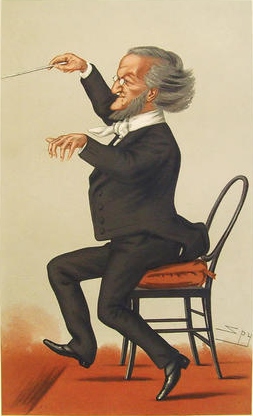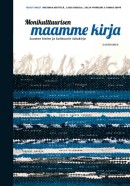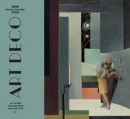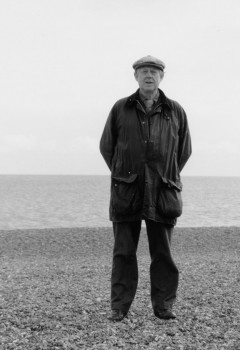Search results for "2011/04/2010/05/song-without-words"
Elitist versus pop?
8 August 2013 | Letter from the Editors

An elitist of his time? A caricature of Richard Wagner by Leslie Ward, published in Vanity Fair in 1877 (caption read ‘The Music of the Future’). Picture: Wikimedia
The old phrase ‘art for art’s sake’ has begun to sound like an appeal instead of an bohemian creed, without any negative ambiguity. Please let art be created for art’s sake!
In our times of neo-liberal ideologies, the criteria for assessing art include its capacity to generate profits to creative industries, to have export value, to be of assistance to business in general. But art, in essence, serves no ideology.
Technology now allows us to be more entertained than ever before, if we so choose. Art and entertainment alike come to us by the use of various devices. What has often been called ‘elitist’ art – opera, modern music, ballet – can be enjoyed lying on the sofa in the home. Money is not an obstacle.
Art, too needs money, of course: orchestras, theatres, training of artists and artists themselves need subsidies from society. Entertainment is by nature profitable business, as it attracts and involves large paying audiences. Smaller audiences want to listen to classical music, read books and see films that are not made solely in order to bring in as much money as possible. But why should these forms of art be called ‘elitist’? More…
Renaissance man
30 September 1990 | Archives online, Fiction, Prose
An extract from the novel Bruno (WSOY, 1990)
Since her first collection of poems, which appeared in 1975, Tiina Kaila (born 1951 [from 2004, Tiina Krohn]) has published four children’s books and three volumes of poetry. Her novel Bruno is a fictive narrative about the Italian philosopher Giordano Bruno, who was burned at the stake in 1600. It is the conflict inherent in her main character that interests Kaila: his philosophical and scientific thought is much closer to that of the present day than, for example, that of Copernicus, and it is this that led him to the stake; and yet he did never abandon his fascination for magic.
The novel follows Bruno on his journeys in Italy; France, Germany and England, where he is accompanied by the French ambassador, Michel de Castelnau. Bruno finds England a barbaric place: ‘…These people believe that it is enough that they know how to speak English, even though no one outside this little island understands a word. No civilised language is spoken here’
In the extract that follows, Bruno, approaching the chalk cliffs of Dover by sea, makes what he feels to be a great discovery: ‘Creation is as infinite as God. And life is the supremest, the vastest and the most inconceivable of all.’
![]()
I was leaning on the foredeck handrail, peering into a greenish mist. The bow was thrashing between great swells, blustering and hissing and shuddering like some huge wheezing animal: Augh – aagh – ho-haugh! Augh – aagh – ho-haugh!
Plenty of space had been reserved for our use on this new two-master cargo boat. Castelnau was transferring his whole family from France – his wife, his daughter, his servants, his library, his furniture, his past and me – to London, where, as you know, he had been appointed Ambassador of France. More…
About calendars and other documents
30 June 1982 | Archives online, Fiction, Prose
An extract from Sudenkorento (‘The dragonfly’, 1970). Introduction by Aarne Kinnunen
I now have. Right here in front of me. To be interviewed. Insulin artist. Caleb Buttocks. I have heard. About his decision. To grasp his nearly. Nonexistent hair and. Lift. Himself and. At the same time. His horse. Out of the swamp into which. He. Claims. He has sunk so deep that. Only. His nose is showing. How is it now, toe dancer Caleb Buttocks. Are you. Perhaps. Or is It your intention. To explain. The self in the world or. The world. In the self. Or is It now that. Just when you. Finally have agreed to. Be interviewed by yourself. You have decided. To go. To the bar for a beer?
– Yes. Can you spare a ten?
– Yes.
– Thanks. See, what’s really happened is that. My hands have started shaking. But when I down two or three bottles of beer, that corpse-washing water as I’ve heard them call it, my hands stop shaking and I don’t make so many typing errors. If I put away six or seven they stop shaking even more and the typing mistakes turn really strange. They become like dreams: all of a sudden you notice you’ve struck it just right. Let’s say, ‘arty’ becomes ‘farty’. Or I mean to say, ‘it strikes me to the core’ I end up typing ‘score’. It’s like that. A friend of mine, an artist, once stuck a revolver in my hand. Imagine, a revolver! I’ve never shot anything with any kind of weapon except a puppy once with a miniature rifle. My God, how nicely it wagged its tail when I aimed at it, but what I’m talking about are handguns, those shiny black steelblue clumps people worship as heaven knows what symbols. It’s not as if I haven’t been hoping to all my life. And now, finally, after I’d waited over fifty years, it turned out that the revolver was a star Nagant, just the kind I’d always dreamed of. So if I ever got one of those, oh, then would sleep through the lulls between shots with that black steel clump ready under my pillow. Well, my friend the artist set out one vodka bottle with a white label and three brown beer bottles with gold labels on the edge of a potato pit – we had just emptied all of them together – stuck the fully loaded star Nagant into my hand, took me thirty yards away and said:
– Oh, Lord. More…
Cautionary tales
30 September 2002 | Fiction, Prose
Short stories from Förklädnader. Sagor, parabler (‘Disguises. Stories, allegories’, Schildts, 2001; Valepukuja. Satuja, vertauksia, WSOY, 2002)
Assistance
All over Hellas, even in the barbarian lands, the lyre-players competed with one another. Odes, paeans, dithyrambs echoed endlessly. Phoebus Apollo himself generously oversaw these productions.
A certain promising singer, Deinarchos by name, who hoped to participate in the upcoming Pythian contest, sat in his study-cave in the mountains of Thessaly waiting for inspiration. He prayed repeatedly to Phoebus for help, but did not detect any response. More…
Monikulttuurisen maamme kirja. Suomen kielen ja kulttuurin lukukirja [The book of our multicultural land. A reader of Finnish language and culture]
23 October 2014 | Mini reviews, Reviews
 Monikulttuurisen maamme kirja. Suomen kielen ja kulttuurin lukukirja
Monikulttuurisen maamme kirja. Suomen kielen ja kulttuurin lukukirja
[The book of our multicultural land. A reader of Finnish language and culture]
Toim. [Ed. By] Marjukka Kenttälä, Lasse Koskela, Saija Pyhäniemi, Tuomas Seppä
Helsinki: Gaudeamus, 2013. 252 pp.
ISBN 978-952-495-253-8
€ 34, hardback
This book opens a fascinating, often entertaining and eminently readable perspective on Finnishness and Finnish culture. It contains short Finnish texts supplied with introductions, from the Kalevala and the writings of Finland’s national author Aleksis Kivi to the present day. There are also Finnish translations of the work of Finnish-Swedish authors. The older texts are drawn from the literary ‘canon’, in works by J.L. Runeberg, Z. Topelius, Juhani Aho, Maria Jotuni, Eino Leino, F.E. Sillanpää, Väinö Linna and Tove Jansson. Among the excerpts that date from more recent times there are even pop and rock lyrics. The writing often throws light on some aspect of Finnishness, sometimes with a critical or ironic note. There is also writing by immigrants. Interspersed with the literary examples are short essays giving the views of experts on subjects like Finnish history, language or sport. Some of the texts conclude with a glossary of unfamiliar words and terms. The explanations are arranged in order of their appearance in the text: for the casual reader seeking the meaning of a word, alphabetical order would have been more practical, though even then some phrases might have remained unnoticed.
Translated by David McDuff
Another morning, another day
Poems from Unen kaivo (‘The well of dreams’, WSOY, 1936). Introduction by Satu Grünthal
IN THE MIRROR
Strange and truly wondrous
in the mirror you look at me.
All I really know is
that you I cannot be.
With my eyes you survey me,
with my lips you smile, too,
what I see in the mirror
is not me, but you, just you.
Whoever you are – astral morning,
eternal night – in the frame
like a wraith, a ghostly phantom,
invisible I remain. More…
Art Deco / ja taiteet / i konsten / and the arts
6 June 2013 | Mini reviews, Reviews
 Scientific editor: Laura Gutman
Scientific editor: Laura Gutman
Editor: Susanna Luojus
Helsinki: Suomalaisen Kirjallisuuden Seura (the Finnish Literature Society), 2013. 179 p., ill.
Texts in Finnish and Swedish, summaries in English
ISBN 978-952-222-430-9
€38, hardback
This work was published simultaneously with the opening of the exhibition ‘Art Déco and the Arts. France–Finlande 1905–1935’, running at the Amos Anderson Art Museum in Helsinki from March to 21 July. Antiquity was the primary source of inspiration for this broad artistic movement in France, after the breakthrough of Fauvism in 1905. In Finland this antimodern – and yet at the same very modern – movement manifested itself most clearly in industrial art, in the 1920s in classicism and 1930s in functionalism. But from early on, Finnish painters and sculptors also kept an eye on the French art and artists – among them Maurice Denis, the spokesman of the antimodernists. The dialogue between the visual and the performative arts (theatre and dance) in Finland is also examined. Samples of Art Deco architecture are mostly absent, as the emphasis is on painting and sculpture. Some less well-known artists of the period (painter Nikolai Kaario, sculptor and engraver Eva Gyldén) are introduced. The exhibition and the richly illustrated book introduce both Finnish and French works – from many museums and collections in France – of both industrial and fine arts, in pictures and in words by nine specialists, offering the reader fresh and interesting comparisons.
In my memory
31 December 1987 | Archives online, Fiction, poetry
Poems and aphorisms from four collections. Introduction by Erkka Lehtola
Let the healing epidemics out! There must be some.
The many-headed monster, the market ideology, it can simultaneously read, count and even write at least 666 works. And without the sign of the beast no one can buy or sell.
Those who can read know you only realise you’ve forgotten how
when you can do it again.
What a handsome winter we have here! If it weren’t so dark, we’d see it. We could orientate ourselves on the stars with the beam from a pocket torch. Somewhere in mid-sky, I’d say, they come flying along on long lights.
As a child I said I’ll do what I want. Now I want what I do.
Who’s in the middle when the two sides of your face are side by side, as they are, in the mirror.
The trees that hide the sun are bright inside.
A frosty night when you feel the stars on your skin and discuss what you’re wearing.
Somebody’s walking over there, with an umbrella over his head, taking the rain for a walk.
I’m so delighted to find so much that’s useless.
What a relief there’s no longer enough time to get acquainted.
From Tuoreessa muistissa kevät (‘Springtime fresh in the memory’), 1987 More…
Advanced search
31 May 2016 |
You can search for texts using author names or free search terms, and filter categories or tags.
Find texts matching either just one search term (OR query) or require all words to appear (AND query). Use quotes when searching for phrases, for example “search phrase”.
Aqua Regia
30 June 2000 | Archives online, Fiction, poetry
Poems from Kuningasvesi (‘Aqua Regia’, WSOY, 1999). Introduction by Peter Mickwitz
Aqua Regia
Aqua regia, aqua regia, thus dissolve into you tallow candles and wing-wax, and in the distilled sun's bowl gold's will is broken. Equal in you are ergot and lightning-rod platinum, no difference between feather and lead, if you perish to become what you love you are the dawn's own.
Medieval landscape
He is a man who takes the measure of words as if each one of them were an angel. Rarely do they agree peaceably to dance with gravity.
You can see him sowing his hymns under the wrong balconies, and that is when even one stammering syllable feels like lightning striking your hip.
Sufficient ransom, if you remember the name oft he one you long for. His own the man curses like a fleur de lys, burnt seal on a shoulder.
Diogenes
You citizen of the world and the barrel troublemaker in the town square Whose heart is a mustard seed and whose memory-is quicklime Who fraternizes with stray dogs and hates coins more than fleas Tell us what they taste like raw cuttlefish and lupine What it feels like to search lantern in hand for the sun buried in shame Tell us how great is the freedom envied even by Alexander How small an empire compared to a slave's brash request: 'Sell me to that man. He needs a master.'
Translated by Anselm Hollo



